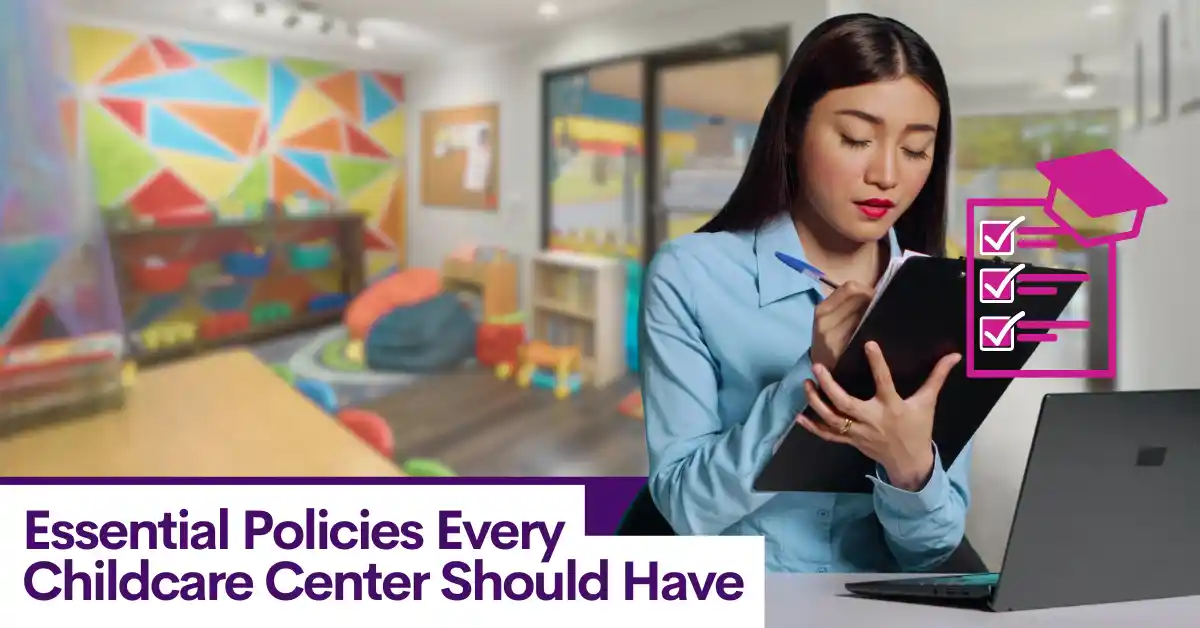
Essential Policies Every Childcare Center Should Have
Running a childcare center is no small feat. Between keeping kids safe, meeting parents’ expectations, and staying compliant with local regulations, there’s a lot to juggle. That’s where solid policies come in—they’re the backbone of smooth operations and legal compliance. Whether you’re starting fresh or refining what you’ve got, here are the key policies every childcare center should have in place.
1. Health and Safety Policy
Safety is non-negotiable. A comprehensive health and safety policy should cover everything from emergency procedures (fire drills, evacuations, lockdowns) to daily routines like handwashing and sanitizing toys. Include guidelines for managing illnesses—think fever thresholds, exclusion periods for contagious conditions, and medication administration rules. Make sure it aligns with state or local health codes, and keep staff trained on CPR and first aid. Parents need to trust that their kids are in good hands, and this policy proves it.
2. Child Protection Policy
This one’s about safeguarding kids from harm. Outline how your center prevents, identifies, and responds to abuse or neglect. Include background check requirements for staff, protocols for reporting suspicions to authorities, and clear boundaries for staff-child interactions (e.g., no alone time behind closed doors). Transparency here builds trust with families and ensures you’re meeting legal mandates like mandatory reporting laws.
3. Drop-Off and Pick-Up Policy
Chaos at drop-off and pick-up can derail your day. Set firm rules: who’s authorized to pick up a child (with ID checks), what happens if someone’s late, and how you handle custody disputes. A sign-in/sign-out system—digital or paper—keeps things organized and doubles as a safety record. Pro tip: communicate this policy upfront to avoid mid-year headaches.
4. Behavior Management Policy
Kids will test limits—it’s what they do. Your behavior management policy should spell out how staff handle tantrums, fights, or defiance. Focus on positive reinforcement, redirection, and age-appropriate consequences, and explicitly ban physical punishment. Consistency is key, so train staff to follow it to the letter. Parents will appreciate knowing how you keep the peace without crossing lines.
5. Nutrition and Allergy Policy
Food can be a minefield. Lay out whether you provide meals or parents pack them, and set standards for healthy eating (e.g., no sugary snacks). Detail how you manage allergies—think peanut-free zones, epi-pen storage, and staff training on anaphylaxis. A clear process for documenting and communicating dietary restrictions keeps everyone safe and avoids legal risks.
6. Staff Training and Conduct Policy
Your team is the heart of your center, so their behavior matters. Define expectations for professionalism, punctuality, and ongoing training (e.g., child development courses, safety refreshers). Include a code of conduct—no gossiping about families, no phone scrolling during shifts—and a process for addressing violations. Well-trained, accountable staff keep operations humming and compliance tight.
7. Parent Communication Policy
Parents want to stay in the loop, but you can’t spend all day on the phone. Set guidelines for how and when you’ll update them—daily reports for infants, weekly newsletters, or an app for quick updates. Include an open-door policy for concerns, but also a chain of command (e.g., teacher first, then director) to keep things orderly. Clear communication cuts down on misunderstandings and keeps families happy.
8. Enrollment and Payment Policy
Money and spots are where things get real. Specify your enrollment process—waitlists, deposits, required paperwork (vaccination records, birth certificates)—and your payment terms. Late fees, refunds, and withdrawal notice periods should be crystal clear. This policy keeps your books balanced and your roster predictable.
9. Emergency Preparedness Policy
Disasters don’t wait for permission. Your emergency plan should cover natural events (earthquakes, floods) and human-made ones (intruders, power outages). Detail evacuation routes, parent reunification plans, and how you’ll communicate during a crisis. Regular drills and an updated contact list are musts. Compliance-wise, this one’s a biggie—regulators don’t mess around with preparedness.
10. Privacy and Confidentiality Policy
You’re handling sensitive info—kids’ medical histories, parents’ contact details, staff records. A privacy policy ensures you’re protecting it all. Explain how data is stored (locked files, encrypted systems), who can access it, and how long you keep it. Tie this to laws like HIPAA or your state’s privacy regs to stay compliant and reassure families their info’s safe.
Why It Matters
These policies aren’t just paperwork—they’re your roadmap to a well-run center. They minimize risks, keep you on the right side of the law, and let parents know you’ve got your act together. Start with these essentials, tweak them to fit your state’s rules and your center’s vibe, and review them yearly. A little effort upfront saves a ton of stress later.
What policies do you swear by at your childcare center? Drop your thoughts below—I’d love to hear what works for you!

